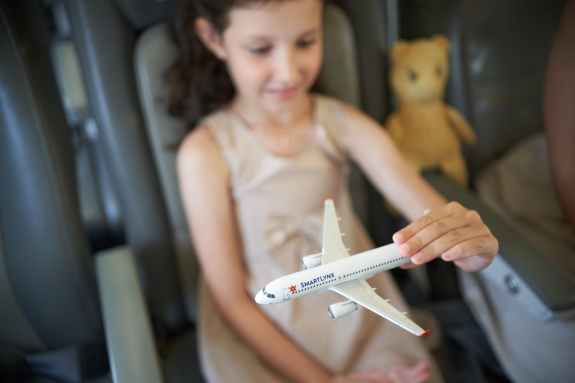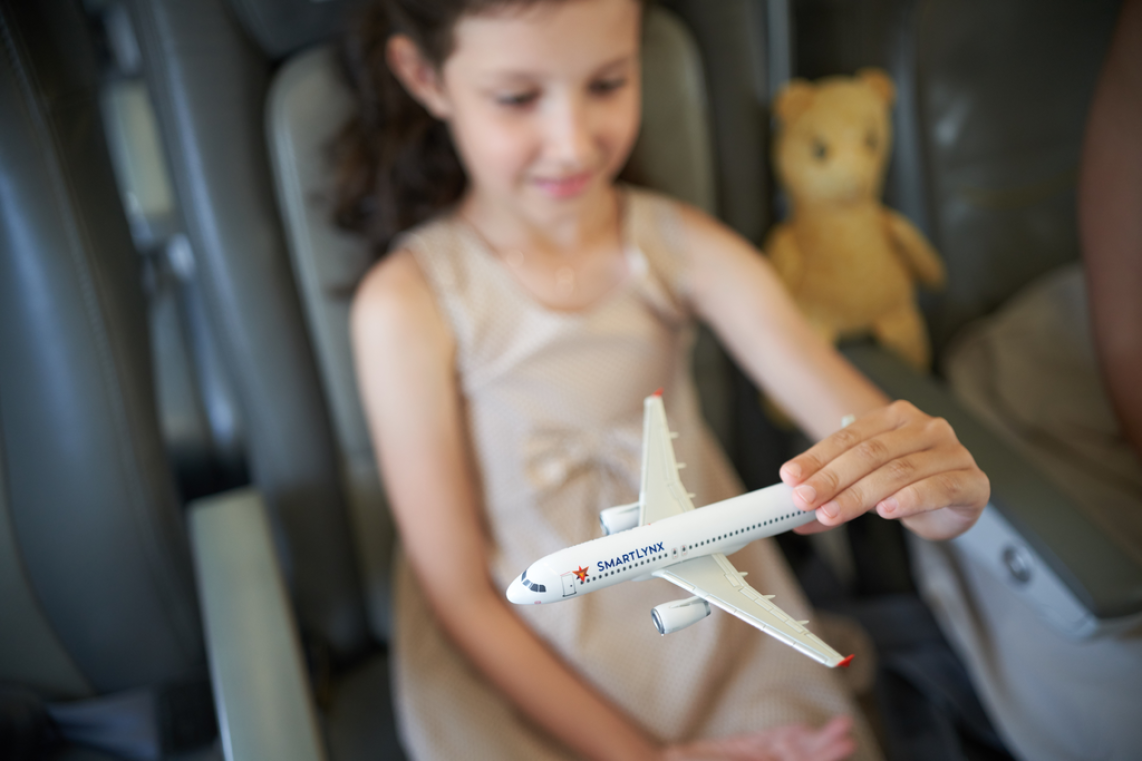

More than one in three people in the world experience anxiety about flying
26.05.2022It is believed that between 33 % and 40 % of all people experience some form of anxiety related to flying. Most of them feel anxious during the flight and leading up to it, but can manage this stress on their own[1]. Even though the possibility of a plane crashing is nearly non-existent, many people still feel anxious and the fear of flying can cause unnecessary stress for travelers. “SmartLynx Airline’s” expert recommends notifying the crew before the flight, as well as sharing other tips that will help reduce the fear of flying so as not to deprive yourself of the pleasure of traveling.
Flying is still a fear for many, although statistics show that traveling by plane is safer than traveling by car. [2] In the survey of the Latvian population conducted by SmartLynx Airlines [3], the most frequently mentioned reasons are fear of plane crashes (11%) and heights (10%), while 6% of respondents indicate that they are afraid of turbulence or air pockets during the flight.
Fear of flying is more common in women and less common in men. A study by the Oslo University Hospital found that women may be afraid to fly after the birth of a child, while men are more likely to experience distressing thoughts during a flight due to fear of losing control of the situation. [4] An interesting trend was observed during the pandemic when the population was more often concerned about the possibility of various microbes and viruses on the aircraft, but these fears can be explained more by the concern about getting sick rather than flying.
“People who are afraid of flying are most often rationally aware that flying is one of the safest ways to travel,” said Antra Angena, a safety analyst at SmartLynx Airlines and a graduate student in clinical and health psychology. “For many of these people, the fear is rooted in losing control of what is going on around them and their body. Before the flight, the fear of the danger to life seems real and justified, but later, when analyzing his/her behaviour, a person often realizes that the reaction and fear were exaggerated and did not correspond to reality.”
According to the expert, when anxiety and fear worsen, severe panic symptoms occur, such as excessive sweating, suffocation, increased breathing and heart rates, confusion, and disorientation. Anxiety can often lead to forgetting to pick up something important – a passport, flight tickets, or the intrusive thoughts that cause a person to repeat compulsive actions countless times. Unfortunately, many people who have experienced increased symptoms of stress or panic attacks once are avoiding further flights.”
Expert advice on how to reduce fear of flying
- Timely travel planning. Often the fear is not from flying but from the travel process itself. For example, a person thinks about what might happen at the airport and after landing at the destination, what will be the way from the airport to the hotel, or whether the luggage, etc. will be delayed or not. Therefore, careful planning of the trip yourself or entrusting it to a tour operator can help to eliminate the anxiety and fears associated with the travel process as a whole.
- Seat selection on the plane. Airlines allow passengers to choose their seats, so choosing a specific seat can help reduce fear of heights or claustrophobic sensations. If the fear is based on fear of heights or it is important to feel a sense of ‘freedom’, it is advisable to choose an aisle seat or a seat closer to the emergency exit.
- Talk to the flight attendants before take-off. Flight attendants are specially trained to deal with crisis situations and are able to help people suffering from anxiety or panic attacks during a flight. It is therefore advisable to warn the crew of the fear of flying before the flight. The flight crew will suggest ways to deal with the anxiety and will ask you several times during the flight how you feel.
- Understanding the causes of fear and overcoming them step by step. It is important to be aware of your fears and irrational thoughts about possible worst-case scenarios that may occur during the journey. Therapists recommend writing down all obsessive thoughts on a page and rating them on a scale of one to 10, with 10 meaning that the thought causes the highest anxiety and 1 – the lowest. This will allow you to structure your thoughts according to the size of their fears and be aware of the biggest triggers. The notes can be discussed with someone close to you or a psychologist who can help you understand how to overcome and restructure your obsessive thoughts in a healthy way step by step. Many find it helpful to do rational research on how airplanes work, why turbulence occurs, and how airplanes take off or land technically. The expert recommends watching the take-off and landing from a distance or trying a flight on a shorter route with a close person, for example to Vilnius or Tallinn.
- Practice awareness exercises. The expert recommends learning and practicing meditation or conscious breathing exercises and practicing them well in advance of the flight so that it becomes a habit. Exercises previously learned and practiced in anxiety situations can effectively help reduce anxiety and prevent obsessive, persistent thoughts.
[1] https://www.stratosjets.com/blog/fear-of-flying-statistics-trends-facts/
[2] https://www.statista.com/statistics/263443/worldwide-air-traffic-fatalities/
[3] A survey of the population`s fear of flying was conducet in April 2022, by surveying 1,000 Latvians aged 18 to 74 online.
[4]https://www.researchgate.net/publication/263207622_Norwegian_airline_passengers_are_not_more_afraid_of_flying_after_the_terror_act_of_September_11_The_flight_anxiety_however_is_significantly_attributed_to_acts_of_terrorism
site.partners.title






